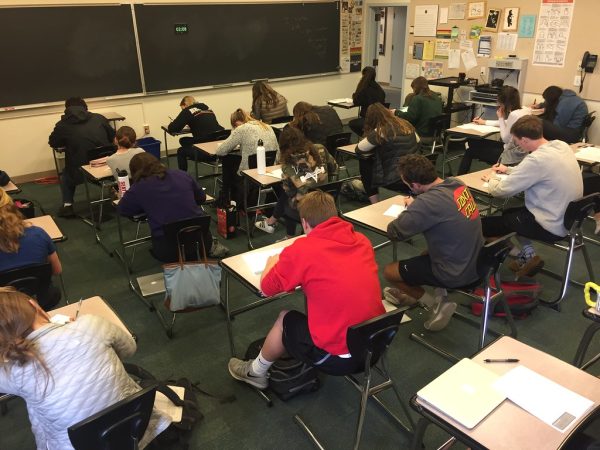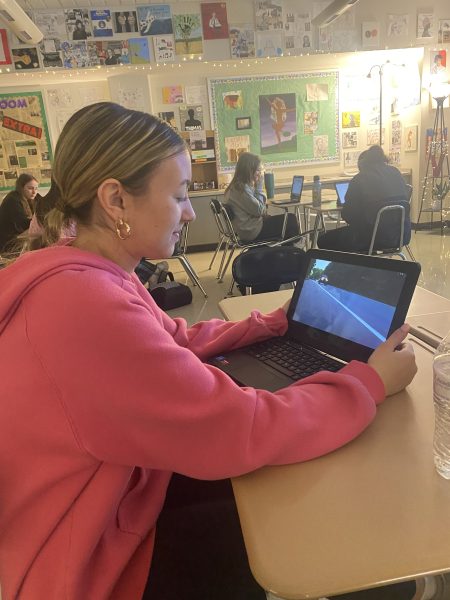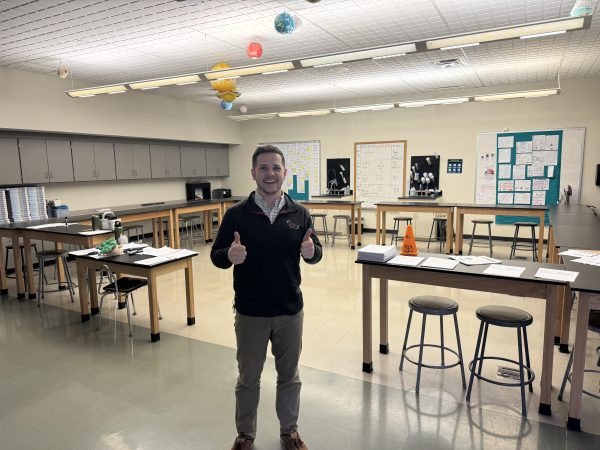Do Teens Need More Sleep?
March 3, 2020
The teenage years of a person are the prime time of growth. The amount of sleep that they get effects the rest of their future. It is no doubt that everyone knows the more sleep a person gets, the better off they are, no matter what the age is. However, if we look at the sleep rate of high school students compared to any other age in these times, we can see the decrease in the amount of sleep they get every night. For adolescents, it’s recommended that they get nine hours of sleep every night, but the external factors of interrupted sleep from academic responsibilities and light-emitting devices lessen, not only the amount, but also the quality of their sleep.
On average a teenager gets around 6 hours and 50 minutes of sleep. They don’t produce the hormone of melatonin that regulates their sleep cycle until later at night sound 11 p.m. which causes it to be more difficult to fall asleep earlier. Add early school start times to that and you get a sleep-deprived teenager who is most likely having greater drawbacks in performance due to lack of rest. Studies have shown that those students who have a lack of sleep have a decreased concentration compacity and poor cognitive efficiency in their performance. Mrs. Gordienko, a teacher at Pennridge High School explained, “The later
| Research shows that well-rested teens are less likely to be depressed, to abuse drugs or alcohol or to crash the cars they drive |
start times will allow the school district to improve in their academic achievements by improving test scores, performance, and activity level during school. The improved academics due to later start times helps students’ acceptance rates for college. You should want your students to want to come to school, however, their performance is hindered due to their lack of sleep”.
In Seattle, beginning with the 2016-2017 school year, the school district moved the official start times for middle and high schools from 7:50 a.m. to 8:45 a.m. This increased the students attending that school district’s sleep amount from 6 hours and 50 minutes to 7 hours and 24 minutes. This increase in sleep benefits by causing increased attendance rates, a decrease in disciplinary action, a decrease in student-involved car accidents, and an increase in student GPA. Here at Pennridge High School, those differences can be seen between students’ performances in their first period versus later in the school day. “When comparing students from morning to afternoon times, there is a difference in personality and work ethic. In the afternoon they are more willing to engage and able to absorb the information better compared to my tired students in the morning who are being forced to be awake at an early hour” said Mrs.Gordienko.
Later school start times wouldn’t just benefit students but also the staff and teachers as well who must wake up earlier and be prepared for the students coming in for the day. Mrs. Gordienko explained “I live 30 minutes north of the District, so I have to wake up earlier to make sure I am prepared for the students. It is not about where I live, it is getting up early in the morning that can affect my performance in school.” Some people fear that pushing school start times back an hour will affect people’s schedules and after school events too much to make a change. Mr. Bush, another teacher at Pennridge High School who is against moving school start times back said, “With a later start time, you could possibly have more early dismissals for extracurricular activities in the afternoon which would mean more missed class time. Also, students who work may lose time in their jobs to make money.” Mrs. Gordienko stated, “Pennridge High School starts at 7:15 a.m., which is really early compared to other schools. If we change our start times to even 8:15 a.m., the school day could end at 3:15 p.m.; therefore, sports and extra-curricular activities shouldn’t be greatly affected. The biggest problem when it comes to later start times is transportation. Whether we should flip the bus hours from elementary school with high school, it could benefit us.”
Gordienko ended the interview by saying, “The students within our school should be the number one priority.” This is true in that the health of the students and the amount of sleep should always be the main priority as their good health is what benefits all parties in the long run.









